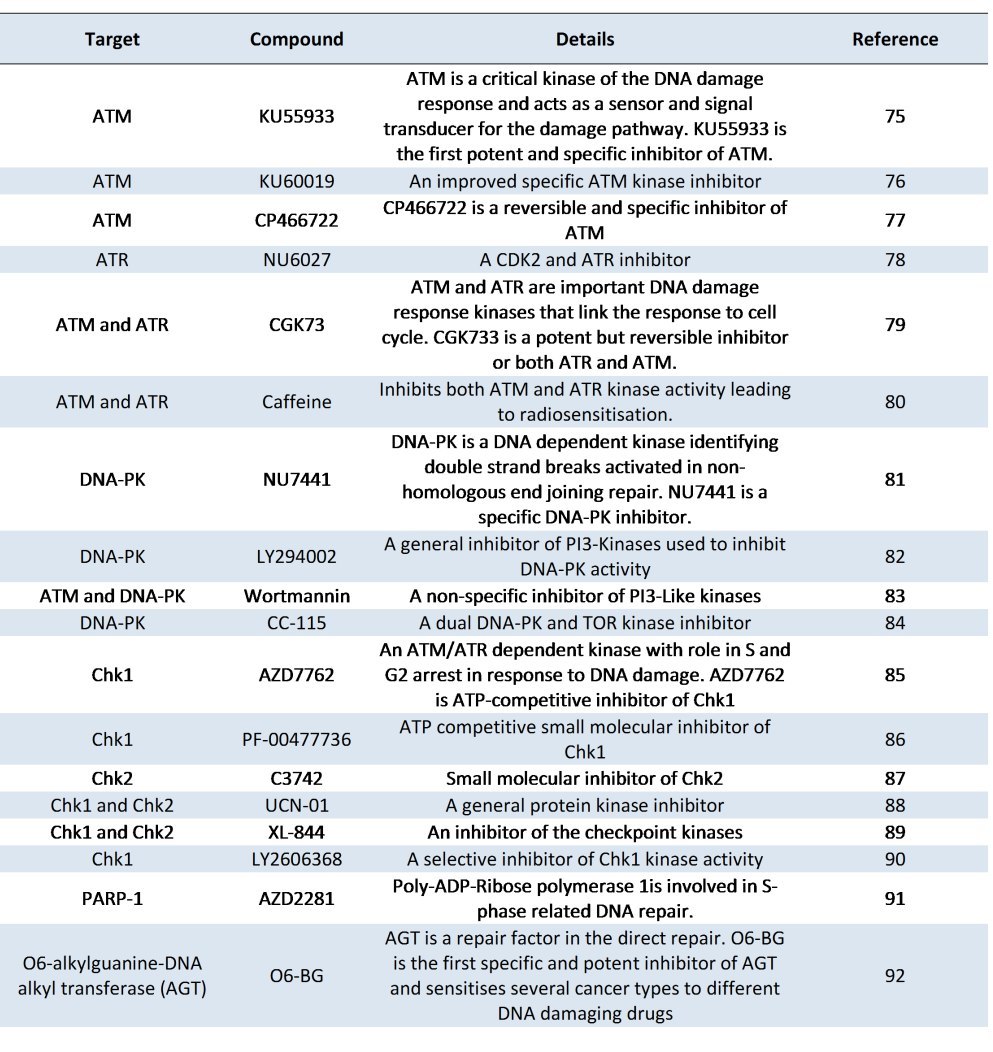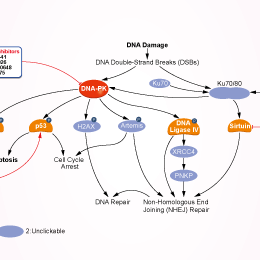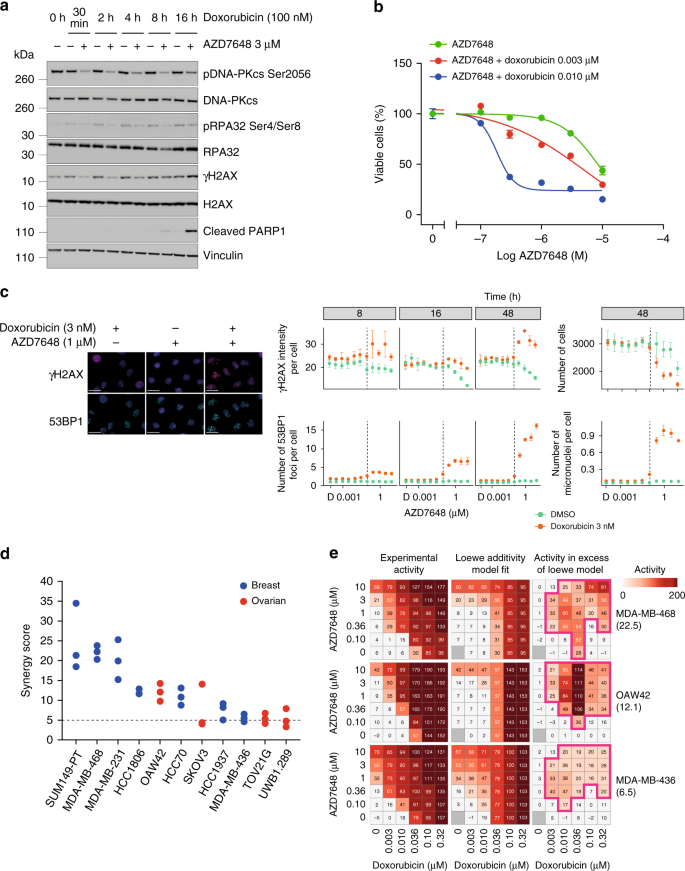
AZD7648 is a potent and selective DNA-PK inhibitor that enhances radiation, chemotherapy and olaparib activity | Nature Communications
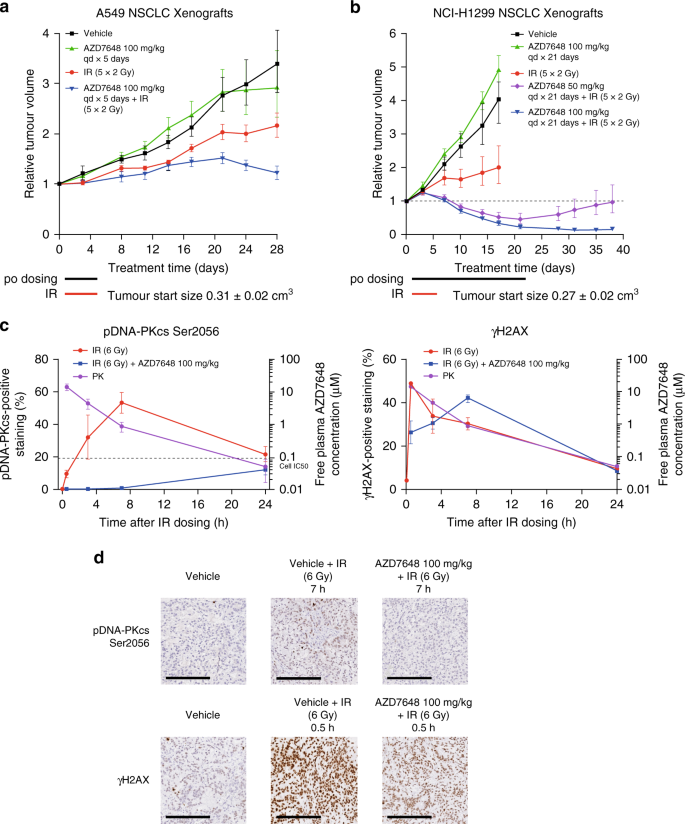
AZD7648 is a potent and selective DNA-PK inhibitor that enhances radiation, chemotherapy and olaparib activity | Nature Communications

Frontiers | Combining PARP and DNA-PK Inhibitors With Irradiation Inhibits HPV-Negative Head and Neck Cancer Squamous Carcinoma Growth | Genetics

Cancers | Free Full-Text | Increased Non-Homologous End Joining Makes DNA-PK a Promising Target for Therapeutic Intervention in Uveal Melanoma | HTML
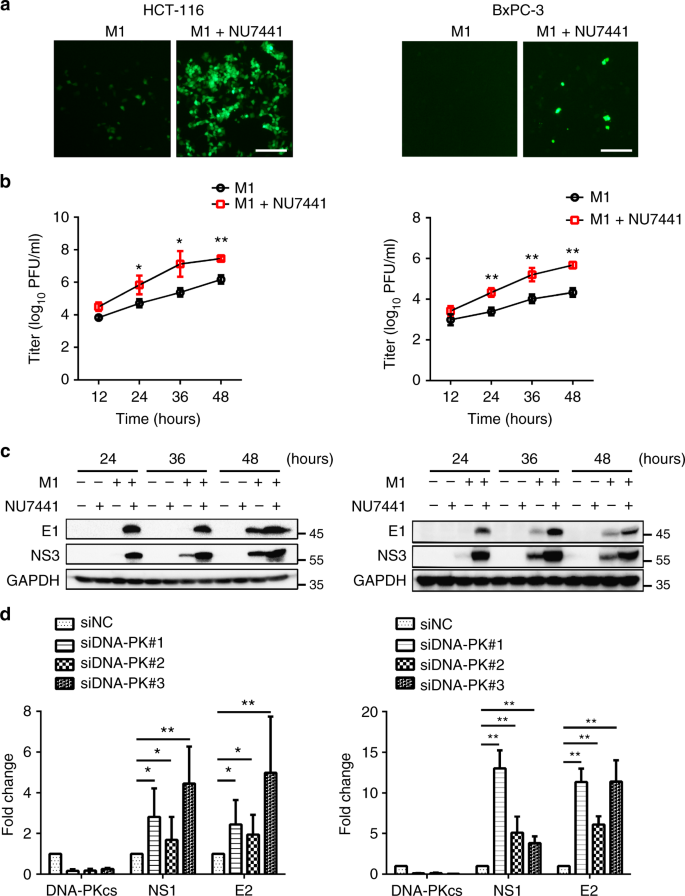
DNA-PK inhibition synergizes with oncolytic virus M1 by inhibiting antiviral response and potentiating DNA damage | Nature Communications

PTEN and DNA-PK determine sensitivity and recovery in response to WEE1 inhibition in human breast cancer | eLife

Cancers | Free Full-Text | Increased Non-Homologous End Joining Makes DNA-PK a Promising Target for Therapeutic Intervention in Uveal Melanoma | HTML

Discovery and Development of Novel DNA-PK Inhibitors by Targeting the unique Ku-DNA Interaction | bioRxiv
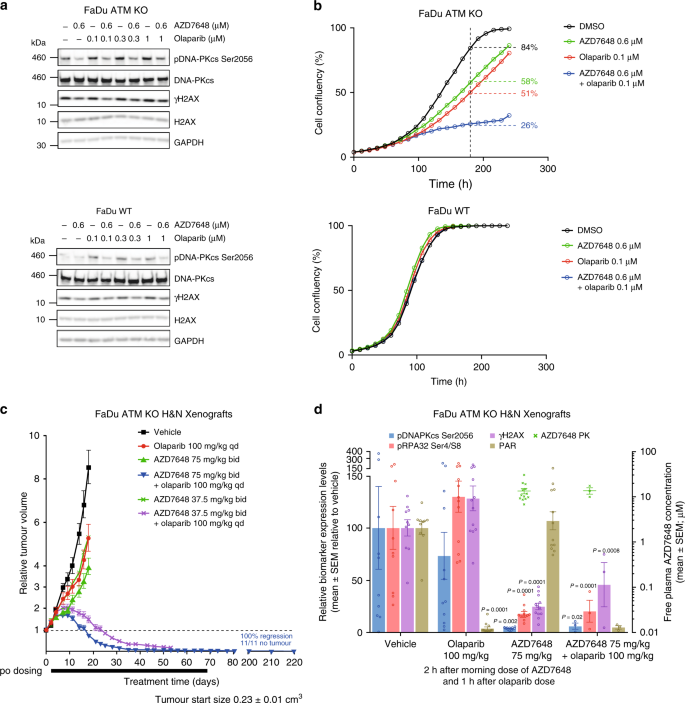
AZD7648 is a potent and selective DNA-PK inhibitor that enhances radiation, chemotherapy and olaparib activity | Nature Communications
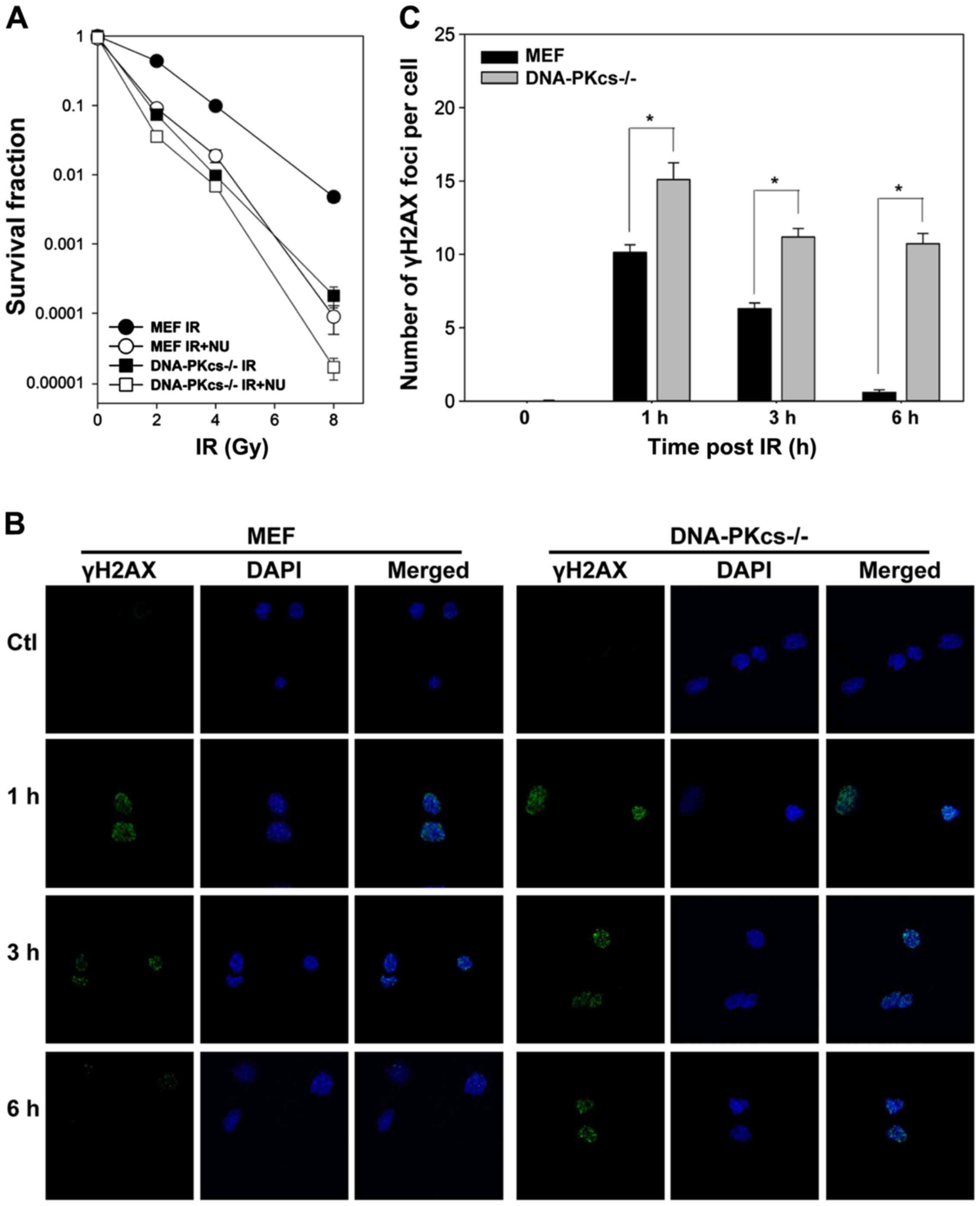
Inactivation of DNA-PK by knockdown DNA-PKcs or NU7441 impairs non-homologous end-joining of radiation-induced double strand break repair

Pre-clinical activity of the oral DNA-PK inhibitor, peposertib (M3814), combined with radiation in xenograft models of cervical cancer | Scientific Reports

DNA-PK in human malignant disorders: Mechanisms and implications for pharmacological interventions - ScienceDirect

DNA-PK inhibition synergizes with oncolytic virus M1 by inhibiting antiviral response and potentiating DNA damage | Nature Communications

PTEN and DNA-PK determine sensitivity and recovery in response to WEE1 inhibition in human breast cancer | eLife

AZD7648 is a potent and selective DNA-PK inhibitor that enhances radiation, chemotherapy and olaparib activity | Nature Communications

DNA-PK is activated by DSB-inducing agents and is inhibited by NU7441.... | Download Scientific Diagram
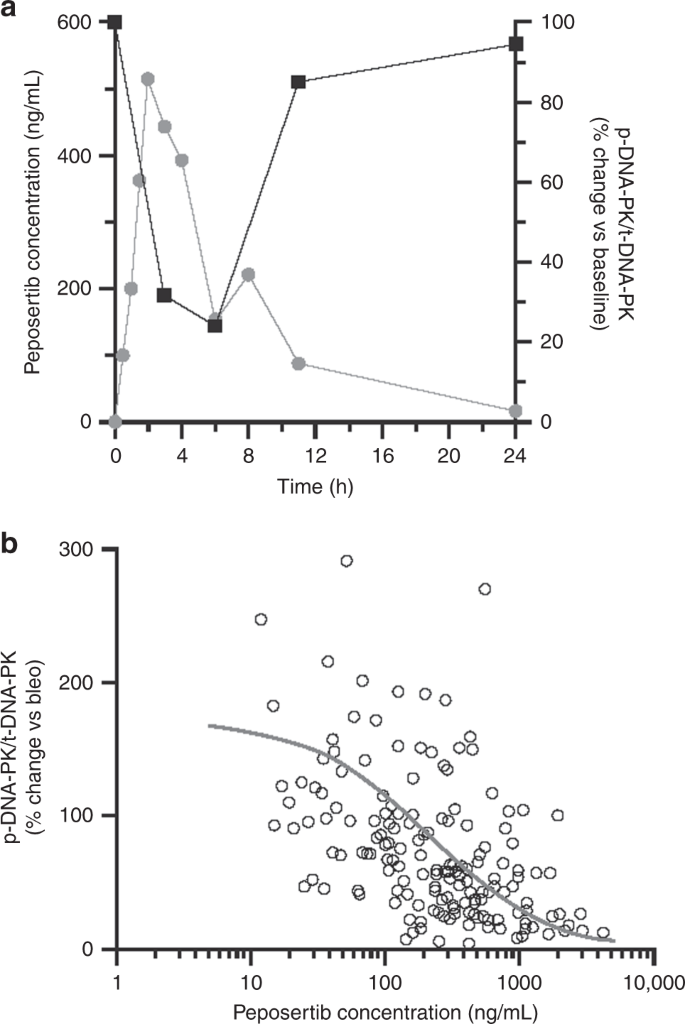
A first-in-man phase 1 study of the DNA-dependent protein kinase inhibitor peposertib (formerly M3814) in patients with advanced solid tumours | British Journal of Cancer
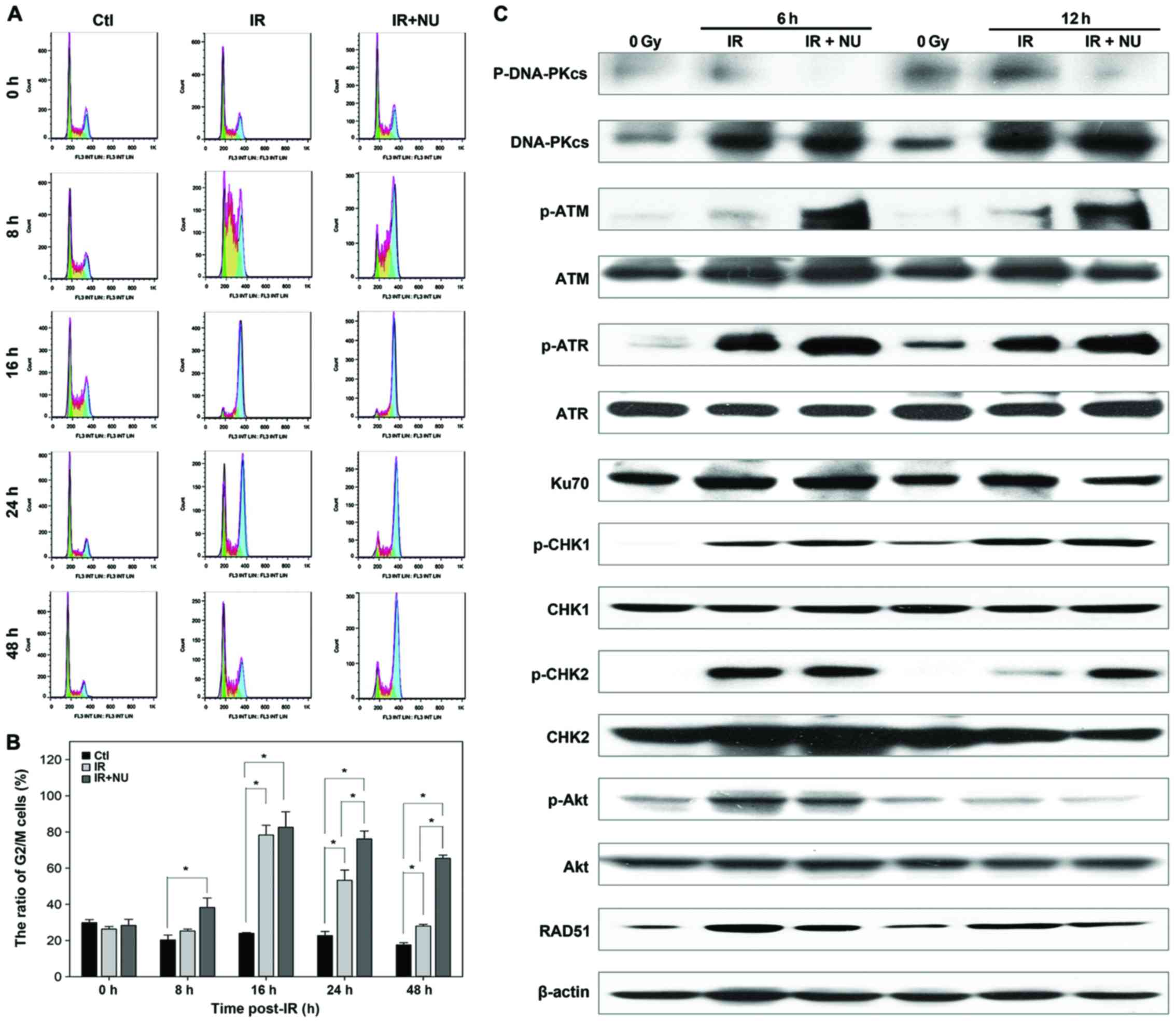
Inactivation of DNA-PK by knockdown DNA-PKcs or NU7441 impairs non-homologous end-joining of radiation-induced double strand break repair

